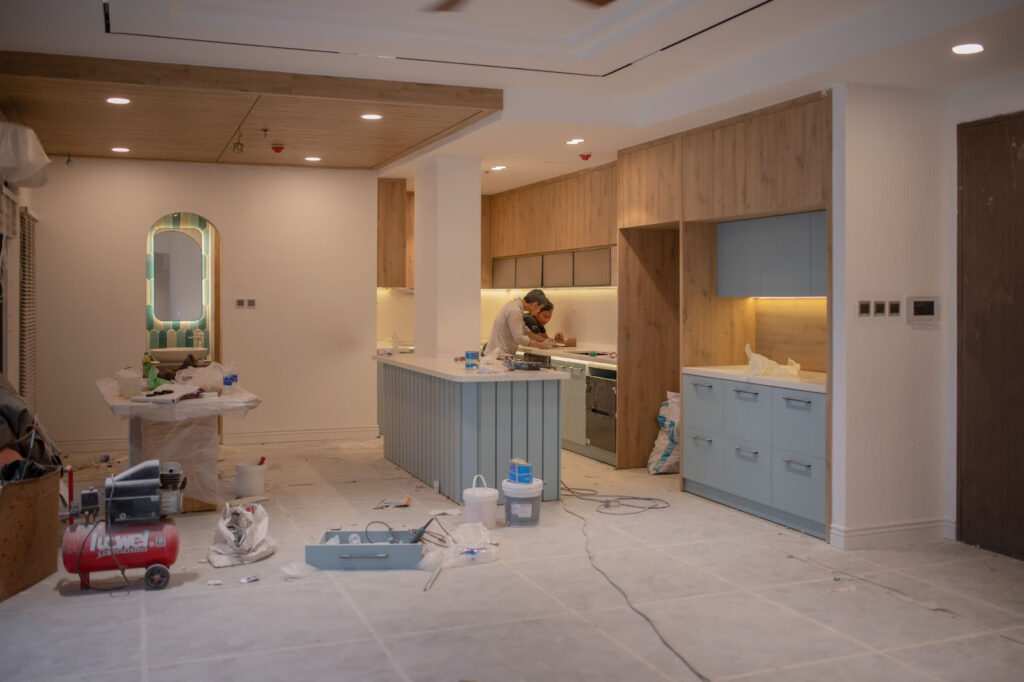
A well-maintained HVAC system not only ensures a comfortable indoor environment but also contributes to energy efficiency and reduced repair costs. One of the best ways to keep your HVAC system in top shape is to schedule regular tune-ups. These comprehensive maintenance checks help identify potential issues before they become major problems, prolonging the life of your system and maintaining optimal performance.
In this blog post, we will explore the essential elements of an HVAC tune-up checklist and what it entails.
Thermostat Check
The thermostat is the control center of your HVAC system. During a tune-up, technicians will check and calibrate your thermostat to ensure it’s functioning correctly and maintaining accurate temperature settings.
Proper calibration helps maintain a comfortable indoor environment and improves energy efficiency. If you’d like to schedule a professional HVAC tune-up, visit Morris Jenkins to learn more.
Air Filter Inspection And Replacement
Air filters play a crucial role in maintaining indoor air quality and ensuring the efficient operation of your HVAC system. During a tune-up, technicians will inspect your air filters for dirt and debris buildup. If necessary, they will replace the filters to improve airflow and reduce strain on your system.
Electrical Connection Inspection
Loose or damaged electrical connections can pose safety hazards and impact the performance of your HVAC system. During a tune-up, technicians will inspect all electrical connections, tightening any loose connections and replacing damaged components as needed.
Lubrication Of Moving Parts
Proper lubrication of moving parts is essential for the smooth operation of your HVAC system. During a tune-up, technicians will lubricate all moving components, reducing friction and wear, and prolonging the life of your system.
Condensate Drain Inspection
A clogged condensate drain can lead to water damage and mold growth within your HVAC system. During a tune-up, technicians will inspect the condensate drain, removing any blockages and ensuring proper drainage to prevent these issues.
Refrigerant Level Check
For air conditioners, the refrigerant level is a critical aspect of system performance. During a tune-up, technicians will check the refrigerant level and add or remove refrigerant as needed to maintain the correct amount. This ensures optimal cooling efficiency and reduces the risk of damage to your system.
Evaporator And Condenser Coil Inspection And Cleaning
Dirty or damaged evaporator and condenser coils can impair the efficiency of your HVAC system. During a tune-up, technicians will inspect these coils, cleaning them if necessary to improve heat transfer and system performance.
Blower Motor And Fan Inspection
The blower motor and fan are responsible for circulating conditioned air throughout your home. During a tune-up, technicians will inspect these components for wear, damage, and proper functioning. If necessary, they will make adjustments or repairs to ensure optimal airflow and system efficiency.
Ductwork Inspection
Leaky or dirty ductwork can significantly impact the efficiency and indoor air quality of your HVAC system. During a tune-up, technicians will inspect your ductwork for leaks, damage, and debris buildup.
If necessary, they will recommend repairs or cleaning to improve system performance and air quality.
System Testing And Performance Evaluation
Once all components have been inspected and serviced, technicians will test your HVAC system to ensure optimal performance. This includes testing for proper airflow, temperature control, and overall system efficiency. If any issues are identified during this evaluation, technicians will make the necessary adjustments or repairs to ensure your system is running at its best.
In Conclusion
A comprehensive HVAC tune-up is essential for maintaining a comfortable, efficient, and safe indoor environment. By following the HVAC tune-up checklist, you can ensure that your system receives the care it needs to function at its best and avoid costly repairs down the line. From thermostat checks and air filter replacements to electrical connection inspections, lubrication of moving parts, refrigerant level checks, coil cleaning, blower motor inspections, ductwork assessments, and system testing, a thorough tune-up covers all aspects of your HVAC system’s performance.
Hi there! I’m at work surfing around your blog from my new iphone 3gs!
Just wanted to say I love reading your blog and look forward to
all your posts! Keep up the fantastic work!
my website: nordvpn coupons inspiresensation (t.co)
Hi there excellent website! Does running a blog like this require a lot of
work? I’ve very little understanding of coding however I had been hoping to start my
own blog soon. Anyhow, if you have any suggestions or techniques for new blog owners please share.
I know this is off topic but I just needed to ask.
Appreciate it!
Take a look at my web-site – nordvpn coupons inspiresensation
350fairfax nordvpn special coupon code 2025
I know this web site provides quality based content and
other material, is there any other web page which offers such information in quality?
You need to take part in a contest for one of the greatest websites on the internet.
I most certainly will highly recommend this site!
Also visit my web site – eharmony special coupon code 2025